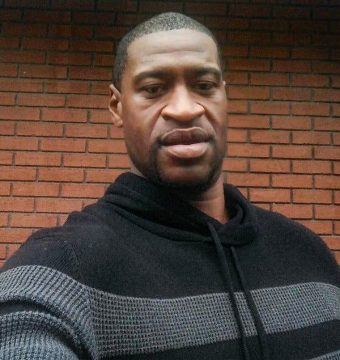by Katie Poore
 It feels impossible this week not to talk about George Floyd, and yet it feels as if talk has become egregiously cheap, less a mechanism for change than a means of resting in paralyses of complacency, disbelief, or comfort. When rage, grief, frustration, and loss take over communities, states, and entire countries as they have this week, words feel at once like our most important tool and a frantic means of filling what could otherwise be a devastating silence. How do we address a racism so deeply ingrained in society that it feels woven into every fiber of our country’s foundation—and, indeed, was there at the United States’ genesis, when black bodies bolstered a white economy at the expense of their lives, health, and humanity, and in the process built what we so misguidedly call the land of the free, the world’s first great democracy?
It feels impossible this week not to talk about George Floyd, and yet it feels as if talk has become egregiously cheap, less a mechanism for change than a means of resting in paralyses of complacency, disbelief, or comfort. When rage, grief, frustration, and loss take over communities, states, and entire countries as they have this week, words feel at once like our most important tool and a frantic means of filling what could otherwise be a devastating silence. How do we address a racism so deeply ingrained in society that it feels woven into every fiber of our country’s foundation—and, indeed, was there at the United States’ genesis, when black bodies bolstered a white economy at the expense of their lives, health, and humanity, and in the process built what we so misguidedly call the land of the free, the world’s first great democracy?
The United States is a country built on the willful acceptance of and blindness toward the paradoxes and hypocrisies that constitute our beginnings, a society rife with beautiful buzzwords that serve more as ornamentation than gospel: Justice. Equality. Freedom. Opportunity. The People. Life, liberty, and the pursuit of happiness.
Deaths like George Floyd’s—unprovoked, delivered by a police officer with his knee on a defenseless man’s neck and his hands in his pockets—fly in the face of this American mythology. We are not a country of justice if black people fear always for their lives, and if black words go largely ignored, disregarded, rendered impotent in the face of white disbelief, or white denial. We are not a country of equality if some lives matter more than others. We are not a country of opportunity if opportunity’s promise only applies to those who have grown up with a wealth of it already. We are not a country run by and for the People until all people can walk safely down a sidewalk, can feel heard by and advocated for by their political leaders and communities.
I am critically aware of my status as a white person when I write these things. I am aware that, as much as I may grasp the facts of the U.S.’s racial past and present, I have myself benefitted from this system. I am aware of the limits of my empathy: I can only understand so much before the reality of being black in America transcends my comprehension. I am aware that my voice—and white voices generally—is not a voice Americans should be prioritizing right now, that my talk must give way to something more than talk, must move toward action, and justice, and dialogue.
This is going to require more than social media posts. These posts are a good first step, but they ought to be just that: a step. Not the fire of protest, but the spark for further action. An Instagram story lingers online for 24 hours, a measly fraction of the time it has taken and will take to reach some semblance of equality, some state in which humanity is a universal right and value, a lived reality rather than a lofty ideal.
In the name of this goal, I will stop speaking here. Below are resources for learning and for giving. But in the midst of this, let us not forget to listen, too, to the voices fighting so fiercely for a seat at the table, and for a full humanity they have long been denied.
Reading:
Just Mercy, by Bryan Stevenson
Men We Reaped, by Jesmyn Ward
Let Justice Roll Down, by John Perkins
We Were Eight Years in Power, by Ta-Nehisi Coates
I’m Still Here, by Austin Channing Brown
Citizen, by Claudia Rankine
Why Are All the Black Kids Sitting Together in the Cafeteria: And Other Conversations About Race, by Beverly Daniel Tatum
Giving:
